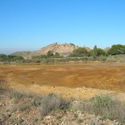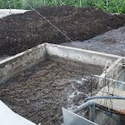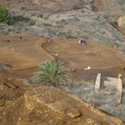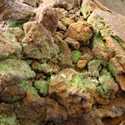Group of Sustaniability of Soil-Plant Systems
Lines of research

The main objective of the research group focuses on the development of technologies for conservation and recovery of the sustainability of the soil-plant system, in particular:
1 Remediation of soils contaminated with heavy metals and metalloids, using phytotechnologies: phytoremediation.
2. Establishment of biological technologies for the recycling of organic waste and their utilisation in the soil-plant system: composting and preparation of fertilisers and soil improvers.
3. Development of bio-fertilisers from microbial growth promoters, for use in organic agriculture.
4. Management of the plant-microbe interactions in the recovery of the vegetation cover in natural areas affected by degradation
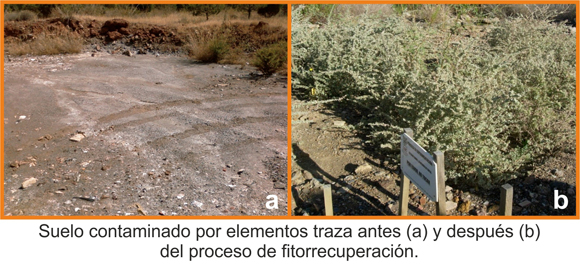
Thus, the Group focuses on multidisciplinary research on the soil-plant system, developing technologies of conservation, remediation of soils and composting for the recycling of organic waste in the soil-plant system. Studies on the preparation and evaluation of fertilisers rich in humified organic matter, through the co-composting of agricultural and agro-industrial by-products with other organic and mineral materials; development of organic amendments which improve the characteristics of the soil, combined with mycorrhizal fungi and other microorganisms that promote growth and enhance the fertility of the soil and the survival of the plants in degraded areas.
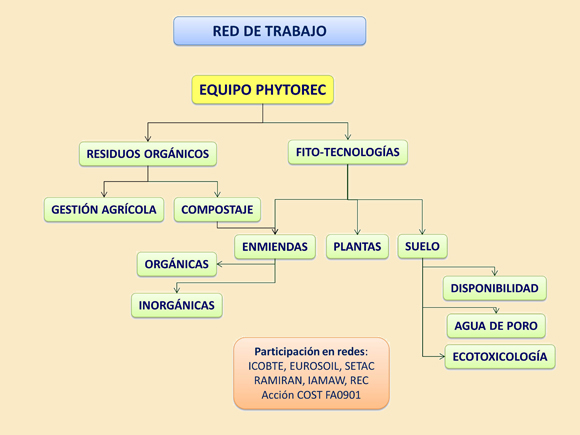
The composting of organic waste is a technology suitable for the production of fertilisers and soil improvers from organic wastes of the livestock and agro-industrial sectors, as well as materials digested by biomethanisation in biogas production plants. Development of organic amendments that improve the characteristics of the soil, enhancing soil fertility and health and plant survival in polluted areas.
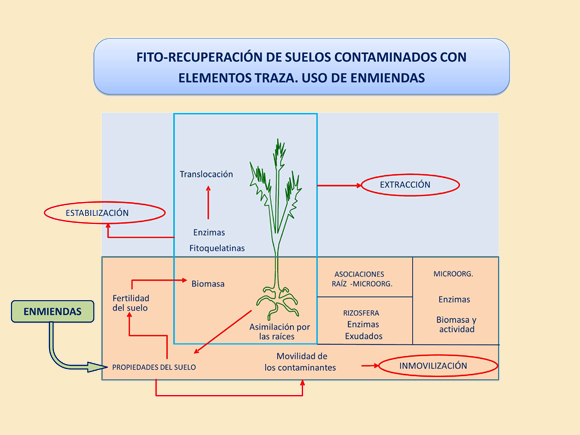
In addition, development of phytotechnologies for the remediation of soils contaminated with trace elements, through the use of plant species adapted to the prevailing pedo-climatic conditions and able to accumulate or exclude metals (depending on the phytoremediation strategy). Such plants, combined with the application of organic amendments, can regenerate degraded and contaminated soils. In this way, the biological activity of the contaminated soil can be recovered, allowing the development of C and N cycles vital to soil health. The in-situ extraction of the soil solution by rhizosamplers allows us to assess changes in the solubility and speciation of trace elements of the soil under real conditions, as affected by the addition of amendments. These analyses, together with the establishment of a vegetative cover and the ecotoxicological evaluation of the soils, enable us to determine the effectiveness of the phytotechnologies for ecosystem recovery.
The implementation of molecular biology techniques allows the characterisation of microbial populations in the rhizosphere, as well as the monitoring of their evolution in response to sustainable management practices. The bioencapsulation and prior conditioning of inocula improve sustainable production in agricultural systems as well as the development of the vegetation cover in degraded natural areas.

